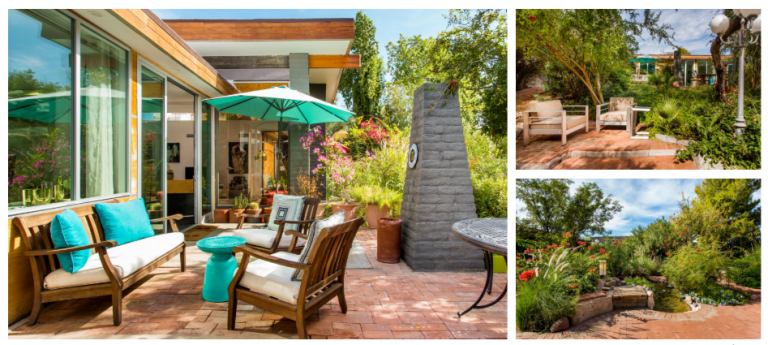Airbnb real estate investing has taken the industry by storm, and we know why- the profit. Investors have quickly realized that they could be making more money with an Airbnb investment property and many have made the switch from traditional rentals to this strategy. Although an Airbnb rental property is a favored choice amongst many in the industry, it’s important to keep one thing in mind: it requires the same amount of effort and work. The money won’t come rolling in on its own; you need to pay attention to the monthly Airbnb cash flow if you want to realize a profit.
Understanding Airbnb Cash Flow
The goal with any rental property investment is clear: to achieve positive cash flow. Cash flow is basically the net profit you make from your investment. Airbnb cash flow is found by subtracting the total Airbnb expenses from the total Airbnb rental income. Cash flow can be calculated on a monthly basis or annually- the same formula applies. You could just divide your annual cash flow by twelve to get average monthly cash flow. However, your monthly cash flow can differ drastically from one month to the next, especially in seasonal markets.
To have an easier time calculating and understanding Airbnb cash flow, we recommend you use a digital tool called the Airbnb profit calculator. Depending on your expected monthly bookings and property expenses, this tool will give you a reliable calculation of estimated cash flow. Knowing what kind of cash flow to expect will give you insight on whether or not you need to be improving this number for a more successful investment. Looking for a tool to calculate your Airbnb cash flow? Start out your 14-day free trial with Mashvisor now to use our tools.
So now you know that your Airbnb profit margins are affected by two main variables: the income and the expenses. To be making positive Airbnb cash flow, you need to be making more money from your bookings than what you’re paying out in expenses. If you’re having a problem with Airbnb cash flow, you can either try increasing your Airbnb rental income, decreasing your Airbnb rental expenses, or both. Let’s get into three ways you can ultimately increase Airbnb cash flow.
1) Increase Bookings
No-brainer, huh? Obviously, increasing bookings and achieving a higher Airbnb occupancy rate is a good sign for increased cash flow. The question here is how to get more bookings on Airbnb. There are a couple of ways to do this.
You can start off with your Airbnb’s listing. If your rental property isn’t marketed well, how can you expect to draw in guests? Make sure all important information is mentioned clearly (rates, number of rooms, amenities, etc.); make it easier for potential guests to read your listing by using bullet points and concise statements. In addition to this information, guests almost always require a visual aspect for the listing. Good pictures of your rental property can make all the difference.

Another key point to remember when trying to increase bookings is your current guests. Their feedback and reviews are what future guests will be looking at, so make sure they leave your property happy. We’re not saying please everyone, because that’s frankly impossible and a couple of negative reviews won’t kill your Airbnb cash flow. However, make sure your guests get the rental property that they saw listed and left from their stay with an experience worthy of a review.
2) Raise Your Rates
Yes, a higher nightly rate will bring in more rental income, but the higher price might draw people away from your property and drop your occupancy rate leaving your Airbnb cash flow worse off. So this won’t be a solution for everyone, because you need to be strategically positioned in the market to justifiably raise your nightly rates. For example, if you just started listing your investment property on Airbnb, a low price is the way to ensure enough bookings. But if you’ve been competitive in the market long enough and the reviews for your listing are impressive, you can slowly raise your nightly rates. At this point, most guests won’t complain about higher rates because you would have built a reputation for your quality service.
To make sure your pricing strategy is right, keep track of average nightly rates for the market you’re in. You can find this type of data and other Airbnb analytics when you sign up for Mashvisor.
3) Lower Your Expenses
Moving on to the other factor of Airbnb cash flow, it’s time to talk about rental property expenses. Your Airbnb property has expenses and it’s important to keep track of them. From Airbnb cleaning fees to repair and property management fees, there’s a long list of possible expenses to account for.
The first thing you can do is re-finance to try and lower monthly mortgage payments. Check for better mortgage interest rates or a longer term. You can also decrease expenses by scheduling regular maintenance checkups. This is an important point for owners of older properties which typically require more repairs. Doing due diligence and having preemptive maintenance will allow you to spot any property issue before they get too costly and start to cut into your Airbnb cash flow.
Another way to cut down on expenses is to reconsider that property manager you have hired. The savings can be quite significant if you’re trying to up your monthly Airbnb cash flow as property managers usually take about 10-30 percent of your gross income. If it comes down to it, you should consider managing the Airbnb rental property yourself until you can afford a professional property manager.
So there you have it, three ways to try and boost your monthly Airbnb cash flow. Never forget the importance of this key real estate investing metric as it is the main indicator of your rental property’s success and profitability.